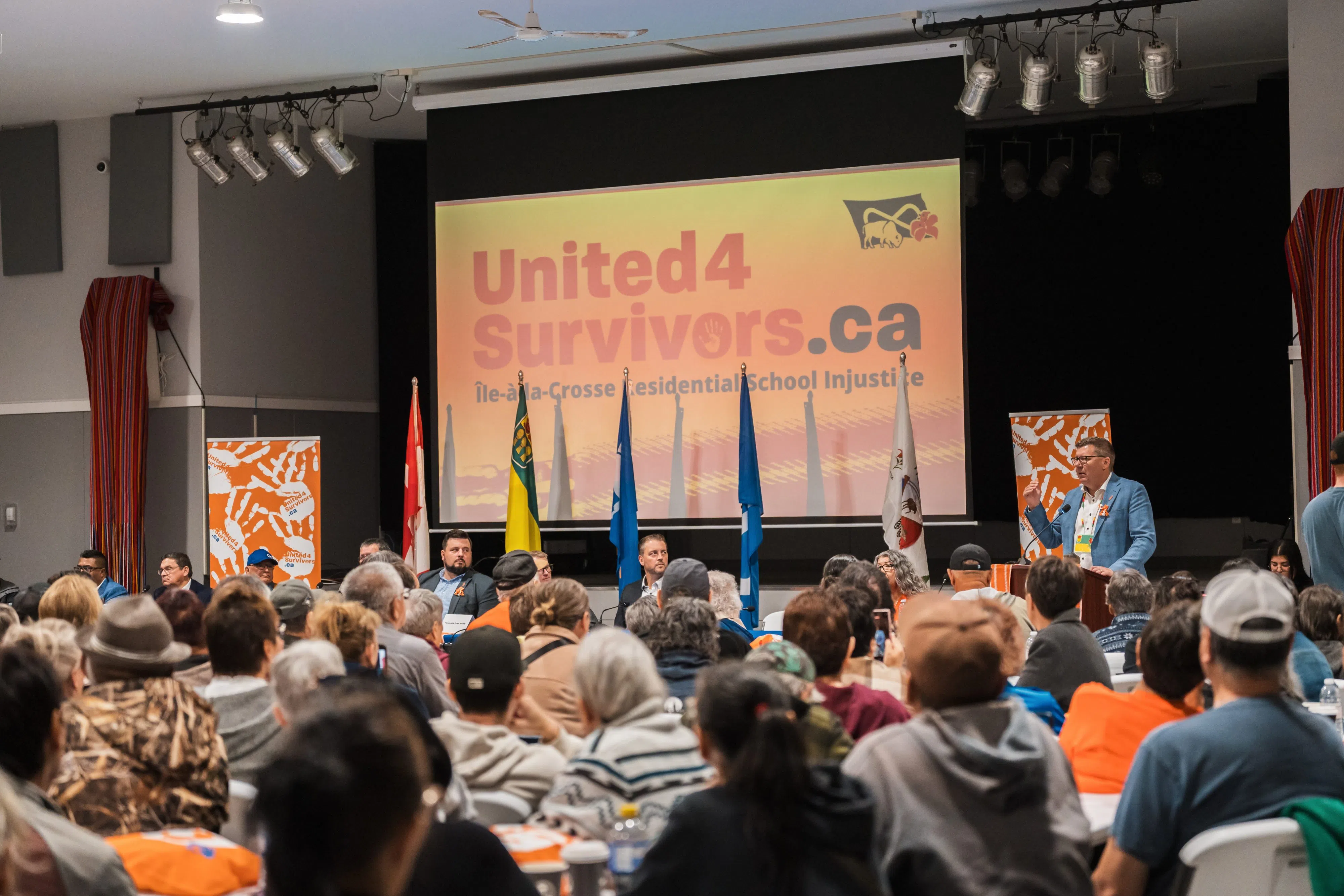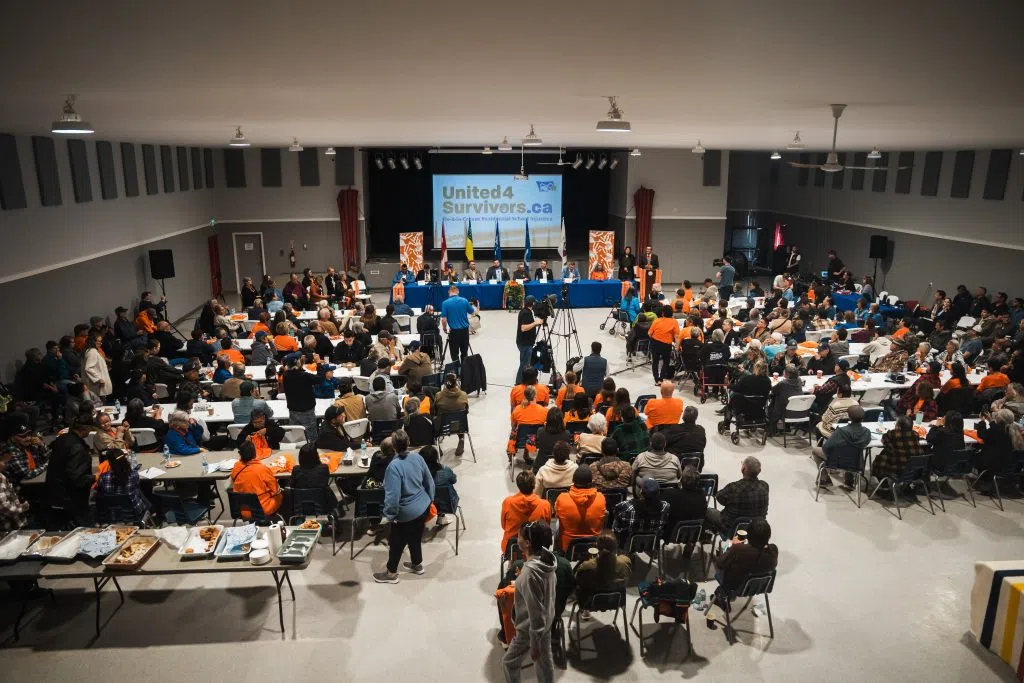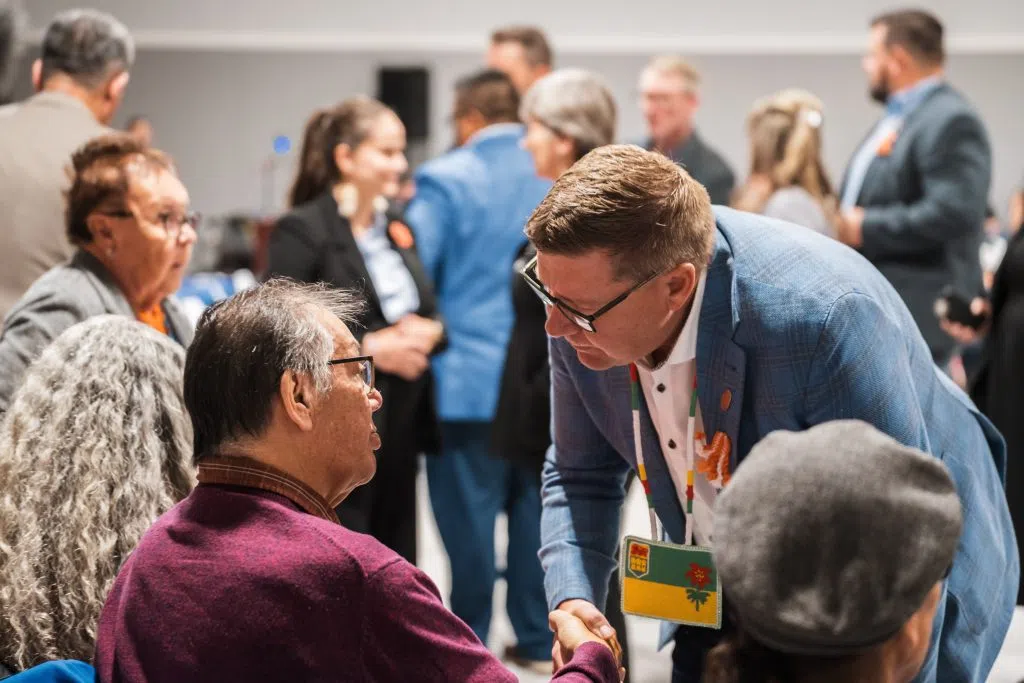
Île-à-la-Crosse Survivors receive apology and promise of compensation
The Government of Saskatchewan has reached an agreement in principle to pay $40.2 million to provide restitution to former students of the Île-à-la-Crosse residential school.
At a press conference in Île-à-la-Crosse on Monday, Saskatchewan Premier Scott Moe issued an official apology on behalf of the province after announcing the monetary settlement for survivors of the school.
“Residential day or industrial schools are a shameful mark on Canada’s history, with harmful intergenerational impacts on Indigenous and Métis people,” said Moe.
“Simply put these schools were a mistake and they should not have existed.”
The Île-à-la-Crosse residential school operated from the 1820s, one of the oldest residential schools in Canada, until it was destroyed by a fire in the mid 1970s. It housed over 1,500 Métis and First Nations children during its operation, who reported cruel treatment and trauma at the school, leading to a loss of language, culture, and identity.
“Hearing the truth and acknowledging the mistakes of the past are important steps on the path and journey of Reconciliation,” said Moe. “We need to continue to work together to a brighter future.”
Premier Moe said the settlement addresses four major pillars of compensation: for the shared experience among former students; to address the abuse; to address legacy, healing, wellness, education, language, culture, and commemoration; and addressing legal fees.

“The agenda was simple: to take the culture of the child,” said Louis Gardiner, lead plaintiff on the class action Gardiner et al v The Attorney General of Canada and the Province of Saskatchewan.
Gardiner attended the residential school from the time he was five years old, from 1961 to 1970. He said they were given numbers instead of using their names, and compared the experience to a prison.
“You couldn’t use your language. The strap and abuse were the main weapons – physical, mental, sexual – were the weapons that were used,” said Gardiner.
This agreement follows the agreement in principle that was reached with the federal government earlier in the year. Survivors had filed a class action lawsuit in 2023 against both the federal and provincial government after failing in previous attempts to negotiate a settlement.




